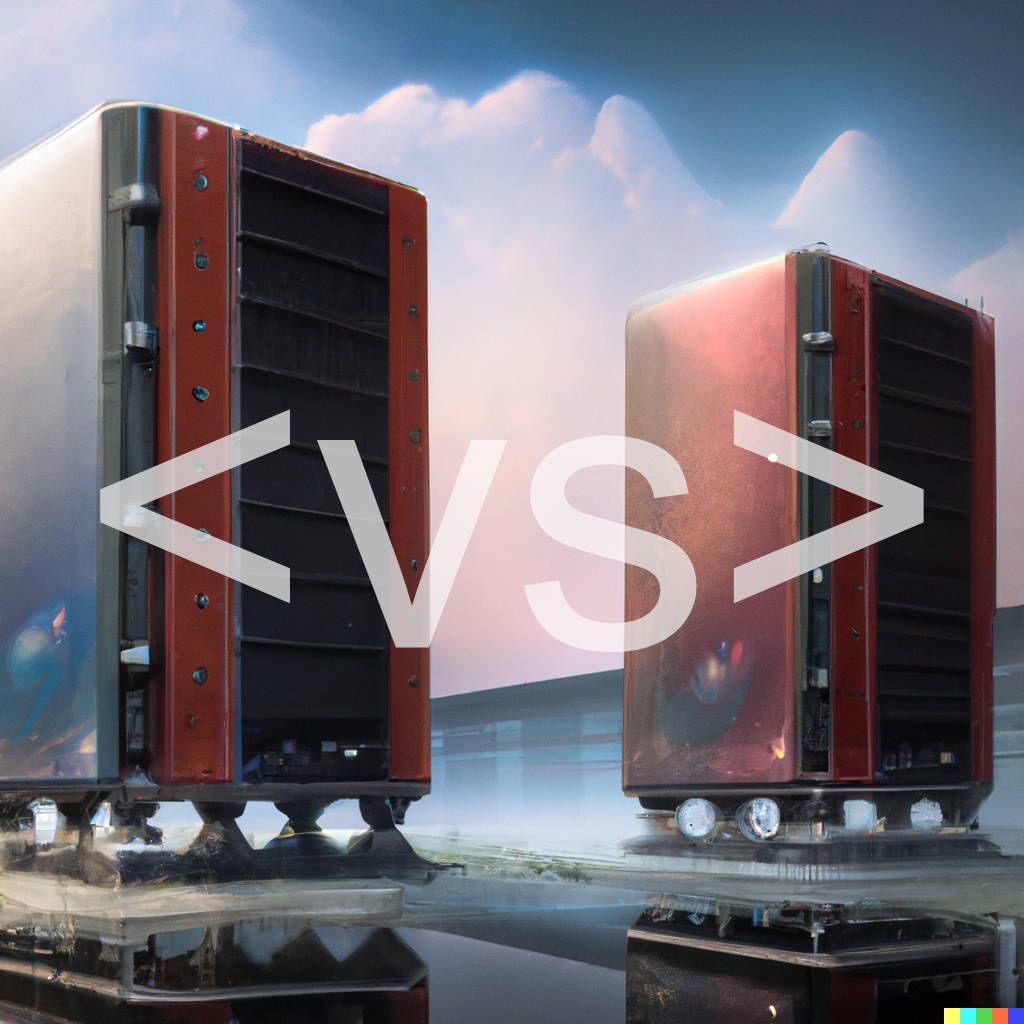Introduction to Codeanywhere and Gitpod
Codeanywhere and Gitpod are both popular cloud-based integrated development environments (IDEs) that allow developers to collaborate, code, and deploy applications from anywhere.
Key differences between Codeanywhere and Gitpod
While both tools offer a wide range of features and capabilities, some key differences set Codeanywhere apart as a better alternative for many developers.
Codeanywhere supports LVM and Gitpod supports containers
One of the key differences between Codeanywhere and Gitpod is that Codeanywhere supports LVM, which is more powerful than containers, which Gitpod supports. LVM allows developers to run multiple applications in a single container, making it easier to manage and scale applications.
Light virtual machines (LVM) are more powerful and flexible than containers because they offer a higher level of isolation and resource allocation compared to containers. Containers share the operating system kernel with the host machine, which means that they are limited in the resources they can use and the processes they can run. In contrast, LVM's run on top of a hypervisor, which allows them to run their own operating system and have access to their own resources.
Additionally, LVM's offer more flexibility in terms of customization and configuration, as they can be configured to meet the specific needs of the applications being run. Overall, LVM's offer a higher level of isolation and resource allocation, making them more powerful and flexible than containers for certain use cases.
Codeanywhere supports DevContainer standard and Gitpod has proprietary configuration
Codeanywhere also supports the DevContainer standard, which is a widely-adopted standard for defining development environments in a consistent and portable manner.
In contrast, Gitpod has its own proprietary configuration (gitpod.yml), which may not be as widely supported or as easy to use as the DevContainer standard.
One reason why Codeanywhere's devcontainer.json support may be considered better than Gitpod's proprietary configuration, gitpod.yml, is that devcontainer.json is an open standard. This means that it is not owned or controlled by a single vendor, and is therefore more likely to be widely supported and adopted by the development community.
In contrast, Gitpod's gitpod.yml configuration is specific to Gitpod and may not be compatible with other tools or platforms. This can limit the flexibility and portability of development environments configured with gitpod.yml, as they may only be able to be used with Gitpod. Additionally, the use of an open standard like DevContainer allows for more transparency and collaboration among developers and organizations, as it is not tied to a specific vendor's proprietary technology.
Comparison of features: Codeanywhere vs Gitpod
Here are the main differences between the two:
- Available on-premises: Codeanywhere offers an on-premises deployment option, which may be attractive to customers who have specific security or compliance concerns and prefer to keep everything behind their firewall. Gitpod is only available as a SaaS platform and does not offer an on-premises option.
- More Secure: Codeanywhere's on-premises deployment option allows customers to host the platform on any cloud provider or even on a bare metal air-gapped server. This gives customers more flexibility in terms of hosting and allows them to choose the solution that best fits their needs. Gitpod is only available as a SaaS platform and does not offer on-premises or other hosting options.
- Native support for Microsoft's DevContainer.json format: Codeanywhere natively supports Microsoft's DevContainer.json format, which is a widely used standard for creating and managing development environments in a consistent and reproducible way. Gitpod uses its own proprietary gitpod.yaml standard, which may not be as widely used or accepted as the DevContainer.json format.
Conclusion: Support for LVM and DevContainer make Codeanywhere a better alternative to Gitpod
Both Codeanywhere and Gitpod offer similar features for cloud-based development environments, including support for multiple languages and frameworks, collaboration features, and customization options. Both platforms also offer extension support, with Codeanywhere and Gitpod supporting VS Code extensions and Theia extensions. In terms of deployment options, Codeanywhere and Gitpod both offer both cloud-based and on-premises deployment options.
Ultimately, the choice between Codeanywhere and Gitpod will depend on your specific needs and preferences. Both platforms offer strong options for cloud-based development environments, and it may be worth considering a trial of both to determine which platform is the best fit.
Overall, Codeanywhere's support for LVM and devcontainer.json make it a better alternative to Gitpod for developers looking for a powerful and flexible cloud IDE with standardised and easily replicable dev environments.
Explore Other Innovative Platforms Like Daytona
In addition to Codeanywhere and Coder.com, keep an eye out for upcoming platforms like Daytona. Daytona is a standardised development environment platform that provides scalability, security, cost-effectiveness, and flexibility. Daytona is poised to revolutionise business development environments with its focus on cutting-edge technologies such as Docker, Kubernetes, and Dev Containers. Keep up to date on industry advancements to fully explore the range of options available to you.
Comparing Codeanywhere and Gitpod: A Feature-by-Feature Analysis




